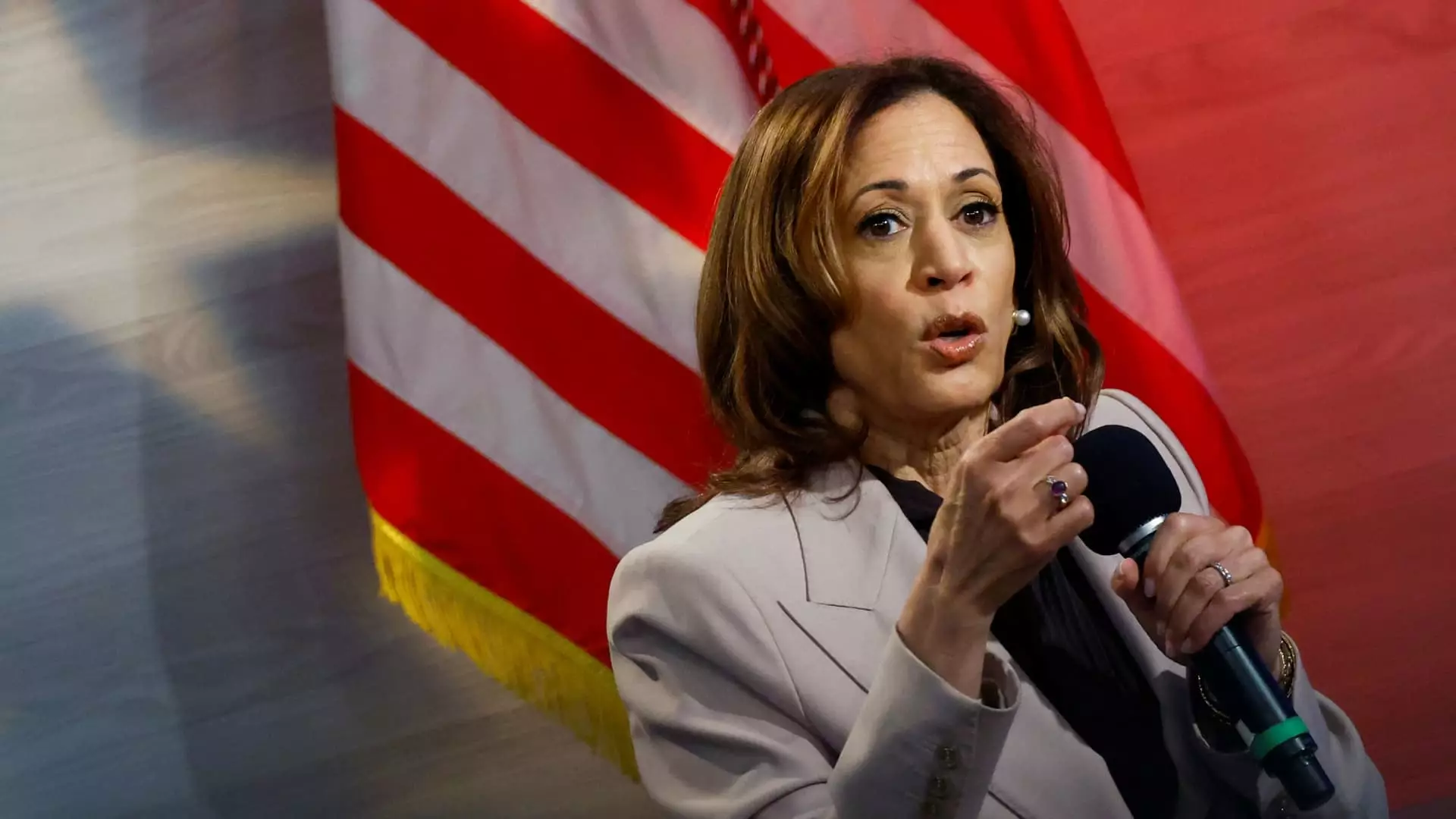In the intricate tapestry of American politics, the demographics and voting patterns of young Black men present a focal point for both parties in the lead-up to elections. Vice President Kamala Harris’s recent outreach emphasizes an urgent recognition of this critical voter bloc, particularly as polls indicate a growing inclination among Black men toward Republican candidates, notably former President Donald Trump. Harris’s approach diverges sharply from the complacency that often characterizes assumptions about voter loyalty; she advocates for an engagement strategy rooted in accountability and commitment rather than solely relying on racial identity for support.
A recent survey conducted by the NAACP highlights an alarming trend: over a quarter of Black men under 50 express support for Trump—a significant shift that has raised concerns within Democratic circles. This situation calls for introspection and action as the Democratic Party seeks to understand the motivations behind this shift in allegiance amidst rising discontent surrounding economic conditions under the Biden administration.
Central to Harris’s strategy is a thorough examination of socioeconomic disparities that have historically plagued Black communities. The stark reality is that countless aspiring entrepreneurs possess vision and ambition but often lack the necessary financial access to transform their ideas into successful ventures. Harris emphasized the critical role of accessibility, particularly through community banks, in fostering an ecosystem that empowers Black entrepreneurs. By advocating for the infusion of “billions more dollars” into these banks, she aims to dismantle the barriers inhibiting economic progress.
Her economic proposals, such as a $50,000 small business tax deduction and the removal of medical debt from credit scores, target systemic inequities that perpetuate economic fragility among Black men. Harris maintains that the prosperity of one demographic inherently contributes to the collective wellbeing of society, encapsulating a broader economic philosophy predicated on interdependence.
Amidst the tentacles of economic recovery post-COVID-19, rising living costs have emerged as a predominant concern for many voters. Trump’s previous administration left voters reminiscing about a pre-pandemic economy that many remember fondly. This sense of nostalgia can cloud judgment and exacerbate anxieties related to the current administration’s performance. Harris’s candidacy hinges on the presentation of tangible economic relief, a narrative that seeks to counteract the trumpet of Trump’s earlier tenure.
To combat the party’s vulnerabilities, Harris’s campaign is executing a dual strategy: while attempting to foster solidarity among Black voters, particularly young men, it is also addressing broader economic concerns that resonate across racial lines. The challenge lies in changing the narrative surrounding economic development within disadvantaged communities, transforming it from a story of struggle into one of opportunity.
In a political climate rife with division and hostility, Harris’s recent criticism of Trump’s perceived dismissal of Black identity underscores a deeper need for respectful dialogue. Her assertion that she is “working to earn the vote” rather than presuming entitlement resonates with many who seek authenticity and acknowledgment of their unique experiences. Trump’s disparaging remarks about her identity and qualifications demonstrate a blatant disregard for the multifaceted identities within Black communities. This calls for not only a political response but also a cultural one—an insistence on an intersectional approach that understands the nuances of identity and experience in shaping political affiliation.
Kamala Harris’s economic proposals aimed at young Black men reflect a transformative vision that intertwines individual empowerment and community revitalization. By prioritizing economic opportunity, addressing systemic barriers, and fostering respectful political discourse, Harris stands at a critical juncture—one that could redefine the trajectory of Democratic prospects in the upcoming election. In an era where political loyalties are increasingly malleable, the focus must shift toward genuine engagement and tangible benefits for all demographics, ensuring that no community is left behind.

Leave a Reply